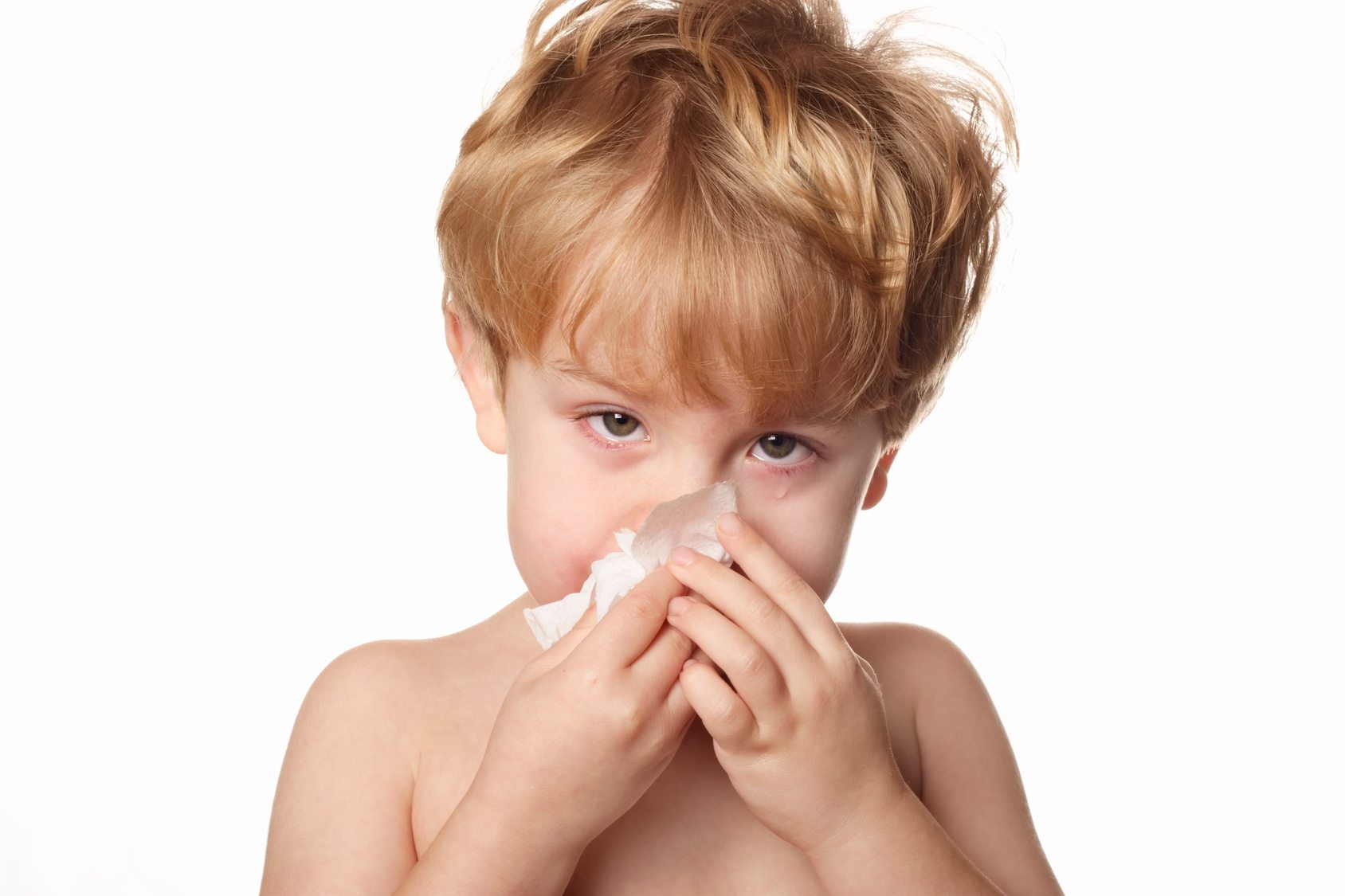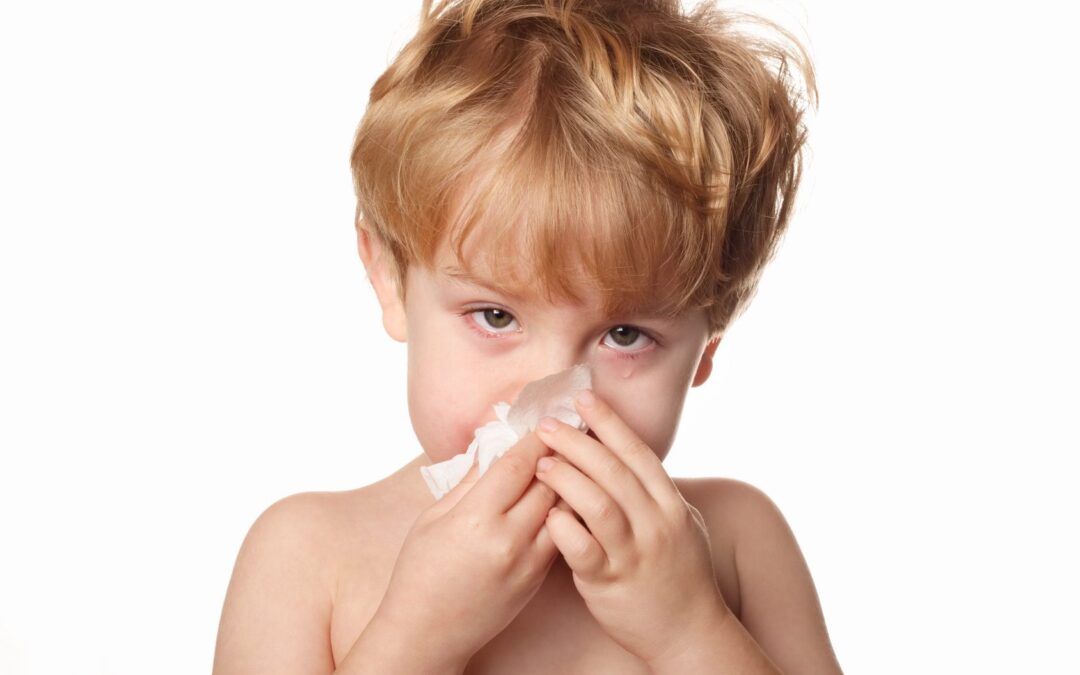
Runny nose, itchy skin and fussiness are never fun, but how can you tell if it’s signs of a more serious allergic reaction? Before we dive into identifying and treating infant allergies, let’s take a step back and look at what causes an allergic reaction.
An allergy is the body’s immune response toward foreign substances called allergens which can include food, animal fur, dust and pollen. Sometimes, when a child’s body comes into contact with certain allergens, the body responds by releasing histamines. This body-allergen reaction causes the various symptoms associated with allergies.
Infant Allergies and Breastfeeding
Allergies are a common health concern affecting one of every five children before the age of 20 years. Children who are fed earlier, more so on cow’s milk, have an increased risk of developing food allergies than those who are breastfed exclusively.
Breast milk serves an important role in protecting against allergies because:
- Colostrum, breast milk produced immediately after birth, has antibodies that prevent against allergens.
- Breast milk produces antibodies that fight against germs in the body.
How To Identify Infant Allergies
Identifying allergies in a baby can be challenging for nursing mothers because some signs and symptoms can be easily mistaken for infections like a cold. Various body systems react differently in response to an allergen. As such, signs and symptoms differ depending on the body system.
Common signs can include:
Respiratory System
- Regular sneezing
- An itchy nose that prompts affected kids to push their nose upwards.
- Dry cough
- A runny nose with a clear mucus discharge
- Nasal congestion
- Difficulty breathing
Although mothers may associate some of the common respiratory symptoms with those of a cold, the difference is that the symptoms of a cold should fade within 10 days but those of allergies are persistent.
Skin
- Itchy rash on the skin
- Eczema
- Hives
- Flushed Cheeks
Eyes
- Itchy eyes
- Red and watery eyes
- Discoloration of the skin under the eyes
Digestive System
- Gas
- Vomiting
- Bloody diarrhea
- Colic
Other Signs May Include
- Ear infections
- Swollen lips and tough
Try to take note if and when these symptoms should appear. Allergic signs tend to be persistent, or they appear and reappear on the event of exposure to allergens. Children who present with any one of the symptoms above are candidates to allergies. Always consult your pediatrician if you have concerns about your child’s health and behavior or to determine any possible allergies. They may recommend seeing an allergist for further examination.
Depending on the duration of exposure and the child’s threshold limit, the time for symptoms to appear can vary, a reason why kids may present with allergies at a later stage in life.
How to Identify the Type of Allergens Causing the Reaction
There are two ways to determine the type of allergy and the type of allergens causing our kids’ reactions. First, we can use medical tests that give quick and accurate results using blood or skin as samples to test allergens.
On the other hand, we can observe when the allergic reactions occur. The allergic reaction may occur after taking a particular meal, coming into contact with pet’s fur, during the cold seasons or in the summer months when plants are flowering. If your child is showing signs and symptoms of an allergic reaction, always check with your pediatrician for tips on effectively treating any possible reaction.
How Can We Manage Our Infants’ Allergies?
One of the ways we can prevent or minimize our kid’s allergic reactions is to try to limit our children’s contact with allergens. One way to do this is by covering bedding with the use of tightly woven fabrics. It’s a good idea to washing beddings regularly, preferably with hot water, to eliminate dust and dust mites. Similarly, we should replace wool carpets with vinyl or other types of carpets that limit trapped dust.
If the allergen is animal fur, then we need to try to keep interactions with pets minimal and refrain from letting them into our living space. We can also opt to clean our pets with shampoos that eliminate pet dander, one of the allergens associated with domestic animals.
Pollen allergens can be difficult to manage, but we can minimize exposure by keeping our kids indoors during the flowering season. If they do play outside during pollen season, it’s a good idea to wash their hair and change their clothes to eliminate any pollen stuck on clothes and hair.
Contact with food allergens can be prevented by eliminating the reactant food from our children’s diet to minimize the chance of an allergic reaction.
What Treatments are Available For Allergies?
Allergy treatments are used to relieve symptoms and/or prevent reactions from occurring. Conventional treatments for mild to moderate allergies include antihistamines or steroid sprays. The majority of these medications are not recommended for kids below six months of age.
Doctors can also prescribe anti-allergy shots for children with life-threatening allergic reactions. The shots are made of controlled amounts of allergens that help the body adjust to exposure.
Common Allergies vs. Food Allergies
In most cases, children develop allergies to the foods first ingested in the early months after birth with cow’s milk ranking highest. Researchers argue that cow’s milk has more than 20 allergens which can cause allergic reactions like vomiting, loss of sleep and itchy skin rashes. Besides cow’s milk, eggs, meat, some types of vegetables like onions, chocolate and fruits can also trigger allergic reactions.
Other types of allergies result when we expose our young ones to external environmental factors like dust and pollen. Allergies can also be genetically inherited from parents.
How Can We Prevent Our Kids From Allergies?
There are some ways in which we can try to prevent or delay the development of infant allergies. The first way is exclusively breastfeeding for the first four to six months after birth. However, just because you do or do not breastfeed does not determine the chance of your child developing any allergies. If you do not choose to or are unable to breastfeed, doctors recommend using hydrolyzed protein supplements that can be easily digested by an infant’s digestive system.
Supplements made from cow’s milk may increase the risk of developing allergies. Children born in a family having a history of food allergies should refrain from the introduction of solid foods in the first six months of life. Always check with your doctor for recommendations specific to your child’s health and dietary needs.
When to Talk to a Doctor
Some allergic reactions can be sudden, severe and life-threatening. While uncommon in infants, types of allergic reactions that require immediate medical attention include:
- Kids exposed to allergens that caused a severe reaction in the past.
- Allergic reactions that cause inflammation in the mouth, face and throat.
- Reactions which present with difficulty breathing or noisy breathing.
- Reactions that cause sweating and vomiting.
- Allergic attacks that render children unconscious.
While early exposure to potential allergens may increase the risk of our kids developing allergies, practices like exclusive breastfeeding and cutting child exposure to allergens may help to minimize allergic reactions. Be mindful of the signs and symptoms of allergic reactions, and always talk to your doctor about any concerns about your child’s health. If your child is having difficulty breathing or showing signs of a severe allergic reaction, seek medical help immediately.


 Complete Our Simple Online Form
Complete Our Simple Online Form We’ll Handle All The Paperwork
We’ll Handle All The Paperwork Receive Your Free Ameda Pump
Receive Your Free Ameda Pump